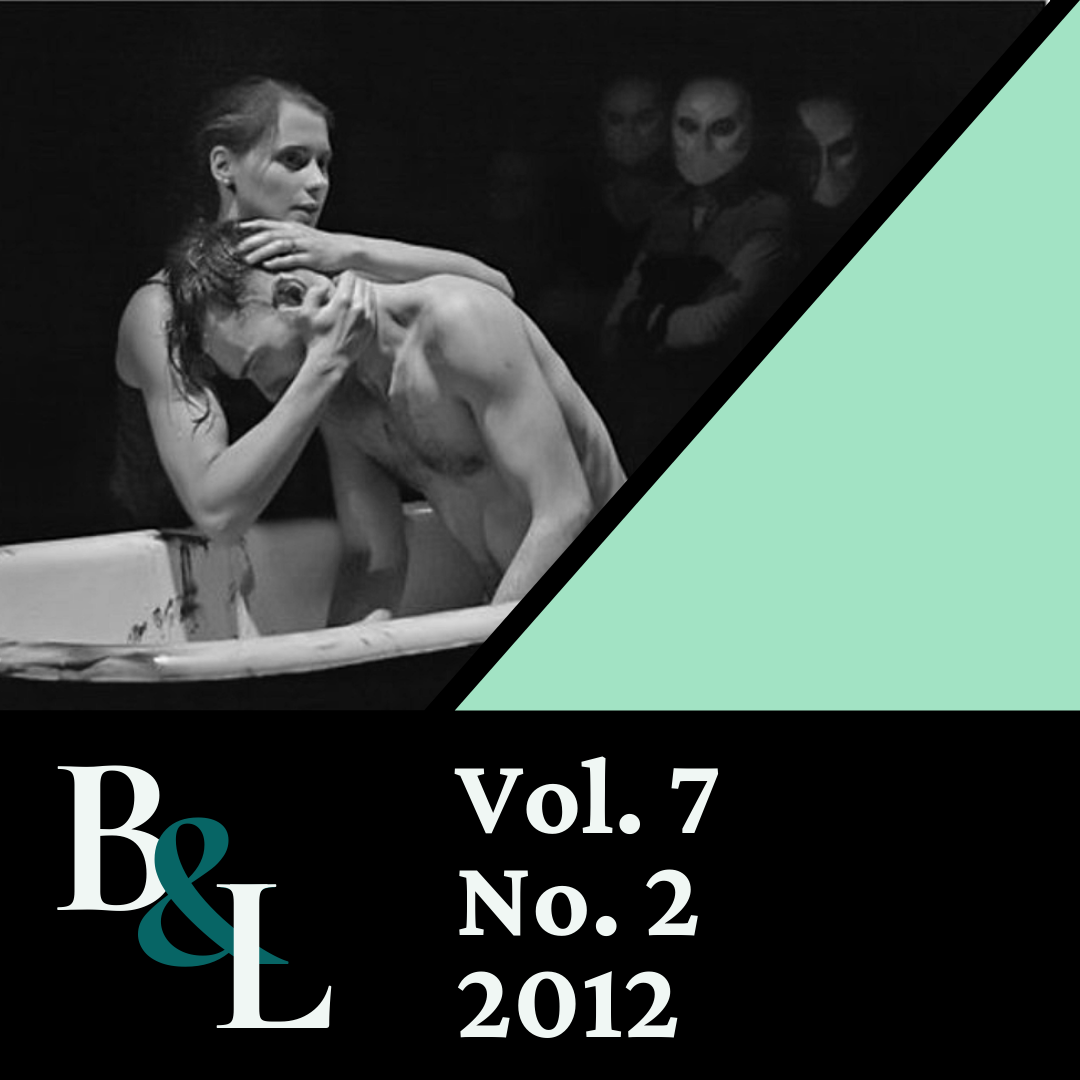What's Missing in Sleep No More
Keywords:
Macbeth, Performance Studies, DialecticsAbstract
This essay explores dialectics of absence and presence in Sleep No More, considering how the production plays with fullness and vacancy in its source, its audience, its theatrical space, and its program book. Inverting the tradition of masked performers by instead masking the audience, Sleep No More thematizes the obscuring and revealing inherent to performance and particularly to adaptive performances. Insofar as Macbeth itself is a play haunted by absence, Sleep No More multiplies the resonant echoes of what is not quite there in ways that illuminate larger operations of adaptation and of drama.


